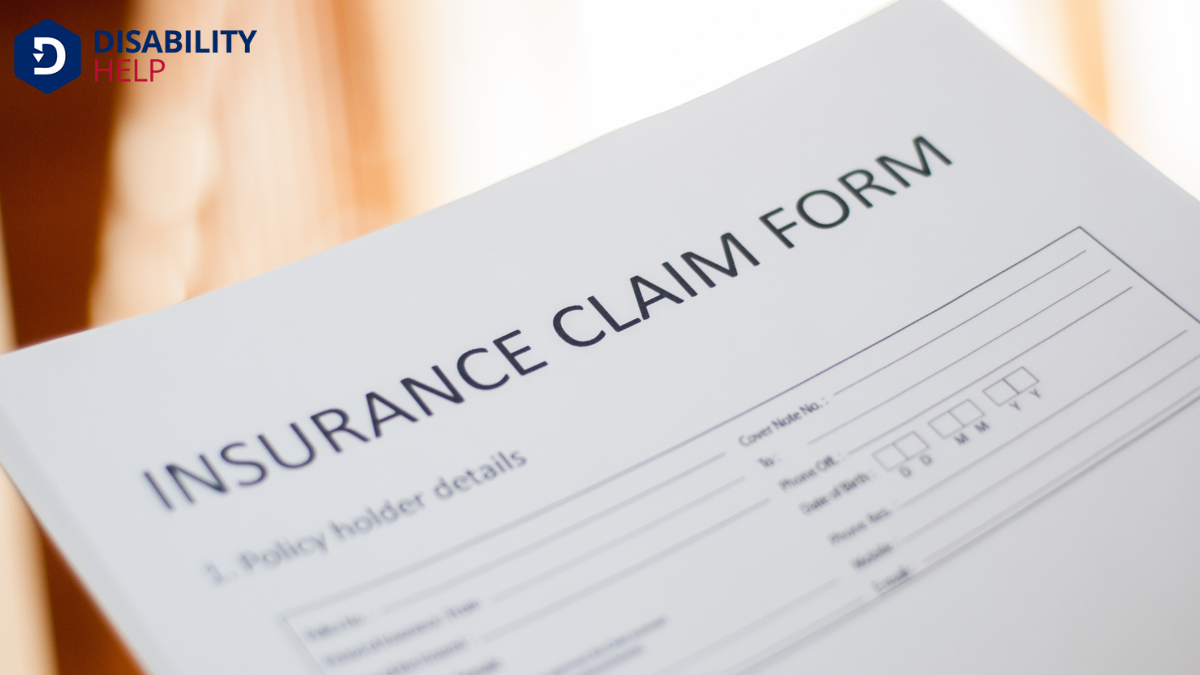When your workers' comp claim gets denied, it can feel like a double blow—not only are you injured, but now you're staring down a mountain of medical bills. Suddenly, you're on your own to figure out how to cover these costs. But before you panic, know there are ways to manage this situation. From exploring insurance options to negotiating with providers, let's look at how you can tackle this challenge head-on.
Key Takeaways
- Medical bills become the injured worker's responsibility if workers' comp is denied.
- Reviewing insurance options is essential to find alternative coverage for medical expenses.
- Negotiating payment plans with healthcare providers can alleviate financial burdens.
- Legal assistance can help challenge the denial and potentially reverse the decision.
- Exploring financial aid programs like MedicaidA U.S. government program that provides health coverage to eligible low-income individuals, includin... or SSI may provide additional support.
Understanding the Reasons for Claim Denial
When it comes to understanding why a workers' comp claim gets denied, it’s vital to recognize the common pitfalls.
I've found that claims often face rejection due to incomplete paperwork or missed deadlines. It's important to guarantee every form is filled out accurately and submitted on time.
Another reason can be the lack of evidence linking the injury to work activities. If your employer disputes the claim, it complicates matters further.
Sometimes, the injury mightn't qualify under workers' comp guidelines, or there's a pre-existing condition involved. Understanding these issues helps in preparing a solid claim.
It’s about being proactive and thorough. By knowing these pitfalls, you’re better equipped to navigate the often-confusing workers' comp process, increasing your chances of approval.
Steps to Take Immediately After Denial

Upon receiving a denial for your workers' comp claim, don't panic—it's crucial to act quickly and strategically.
First, review the denial letter carefully to understand the specific reasons for the rejection. This document holds the key to your next steps and helps you plan an effective response.
Then, consider these immediate actions:
- Contact Your Employer: Reach out to your employer's HR department. Confirm that all necessary documentation was submitted and clarify any misunderstandings.
- Consult Your Doctor: Verify your medical records accurately reflect your injury and treatment. Sometimes additional medical evidence can support your case.
- Seek Legal Advice: Consulting a workers' comp attorney can provide you with guidance on how to proceed, making sure you're aware of your rights and options.
The Appeal Process for Denied Claims
Although a denial of your workers' comp claim can feel disheartening, understanding the appeal process gives you a fighting chance to reverse the decision.
First, carefully review the denial letter to pinpoint the reasons behind it. This insight is vital for building a strong appeal.
Next, guarantee you gather all necessary documentation, such as medical records and witness statements, to support your claim.
I can't stress enough how important deadlines are; missing them could jeopardize your appeal.
Filing the appeal requires completing specific forms and sometimes attending a hearing.
I recommend consulting with an attorney specializing in workers' comp to navigate this complex process. Their expertise can increase your chances of a successful outcome.
Stay persistent and focused.
Exploring Private Health Insurance Options
When considering private health insuranceA system for paying for medical services, often covering preventive, diagnostic, and treatment costs... options, I focus on understanding the eligibility requirements, which can vary widely between plans.
It's important for you to weigh the out-of-pocket costs against the coverage provided to guarantee it fits your financial situation.
Additionally, don't forget to check if your preferred doctors and hospitals are within the plan's network, as this can impact both convenience and costs.
Coverage Eligibility Requirements
Maneuvering the world of private health insurance can feel overwhelming, especially when you're trying to understand the coverage eligibility requirements. I get it; the process isn't always straightforward.
So, let's break it down into bite-sized steps to make it more approachable:
- Income Level: Insurers often consider your income to determine the type of plans you qualify for. Higher income might mean more options, while lower income could limit choices or offer subsidies.
- Pre-existing Conditions: Although many insurers can't deny coverage due to pre-existing conditions, these might still affect the plan's cost or options available.
- Employment Status: Your job situation plays a significant role. Being employed might provide access to employer-sponsored plans, while self-employment could require exploring individual plans.
Understanding these factors can guide your decisions.
Out-of-Pocket Costs
Understanding coverage eligibility requirements is just one piece of the puzzle; now, let's shift our focus to out-of-pocket costs when exploring private health insurance options.
Steering through these costs can be overwhelming, so let me share what I've learned. First, you'll need to take into account deductibles, which are the amounts you pay before your insurance kicks in.
Then, there are copayments and coinsurance, which are the shared costs between you and your insurer for services. It’s essential to review your policy to know what's covered and the limits for each service.
Don’t forget about premiums—the regular payments just to maintain your insurance. By understanding these factors, you'll better manage potential financial burdens when workers' comp doesn't cover your medical bills.
Network Provider Limitations
Maneuvering the intricacies of network provider limitations in private health insurance options can be tricky, but it's crucial to understand how it impacts your access to care.
When workers' comp is denied, knowing your private insurance network can make a significant difference. Here's what to watch for:
- In-Network vs. Out-of-Network: Staying in-network usually means lower costs. Out-of-network providers might charge you more or not be covered at all.
- Referral Requirements: Some plans need referrals to see specialists. Without it, you might face high out-of-pocket costs or denial of coverage.
- Pre-Authorization: Certain procedures or treatments require pre-authorization. Failing to get it can lead to unexpected bills.
Understanding these nuances helps guarantee you receive the care you need without unnecessary financial stress.
Utilizing State and Federal Assistance Programs

When facing medical bills and workers' comp challenges, I've found that state and federal assistance programs can be a lifeline.
Understanding Medicaid eligibility criteria is essential, as it can provide substantial relief for those who qualify.
You should also consider applying for financial aid programs designed to help people in financial distress manage their healthcare costs.
Medicaid Eligibility Criteria
Delving into Medicaid eligibility criteria can seem challenging, yet it's vital for accessing necessary healthcare support.
I know firsthand how important it's to navigate these waters confidently. When workers' comp falls through, understanding Medicaid can be your lifeline.
Here's a simplified breakdown of the eligibility criteria:
- Income Limits: Your income must fall within specified federal poverty levels. This varies by state, so check your local guidelines.
- Residency Requirements: You need to be a resident of the state where you're applying. This guarantees that state resources are appropriately allocated.
- Categorical Requirements: These include specific groups like low-income families, pregnant women, and individuals with disabilities.
Understanding these criteria can make a significant difference in securing the healthcare you need.
Applying for Financial Aid
Curious about how to ease the burden of medical expenses through financial aid? When workers' comp is denied, don't lose hope. State and federal assistance programs might be your lifeline.
First, explore Medicaid or your state's health insurance marketplace. You might qualify for subsidies or low-cost coverage based on income and family size.
Additionally, consider applying for Supplemental Security Income (SSI) if you have a qualifying disability. Some states offer special funds for those injured at work but denied workers' comp.
Also, check if there are local health programs that cover specific medical needs. It's essential to gather your financial documents and medical records for applications.
Negotiating With Medical Providers for Payment Plans
Although facing medical bills can be overwhelming, negotiating with medical providers for payment plans is a viable solution that can alleviate the financial burden.
Let me guide you through this process. First, reach out to the billing department and explain your situation. They may be more understanding than you expect.
Here’s how you can proceed:
- Prepare Your Case: Gather all your financial documents. Show them your income, expenses, and any denied workers' comp claims. This transparency builds trust.
- Propose a Payment Plan: Offer a reasonable amount you can pay monthly. Be realistic—don’t overcommit.
- Get It in Writing: Once an agreement is reached, make sure you receive written confirmation of the terms. This protects both parties.
Taking these steps makes managing medical bills less overwhelming.
Legal Assistance and Representation
While negotiating payment plans can ease your immediate financial strain, sometimes you need more robust support to navigate the complexities of workers' compensation.
I've found that seeking legal assistance can be a game changer. A skilled attorney knows the ins and outs of the system and can advocate on your behalf. They’ll help you understand your rights and what steps you should take next.
Don’t underestimate the power of having someone in your corner who’s been through this before. Legal representationThe way people with disabilities are depicted in media, culture, and politics, often influencing pub... can challenge denials, negotiate with insurers, and even take your case to court if necessary.
It’s about ensuring you get the benefits you deserve. So, if you're feeling overwhelmed, consider reaching out to a trusted workers' comp attorney.
Preventive Measures for Future Claims

One of the best ways to protect yourself from future workers' comp claims is by taking proactive steps now. You might feel it’s overwhelming, but trust me, a little preparation goes a long way.
Here’s what I suggest:
- Educate Yourself: Understand the workers' comp process. Knowing what’s covered and how to file a claim properly can save you trouble later.
- Document Everything: Keep detailed records of your work conditions and any incidents. Photos and notes can be invaluable if you need evidence.
- Communicate Openly: Talk with your employer about any safety concerns. Open dialogue can lead to improvements that prevent injuries.
Conclusion
When my workers' comp claim was denied, I realized I had to take control of my situation. I explored private insurance and reached out to state and federal assistance programs. Negotiating payment plans with medical providers was essential, and seeking legal advice gave me confidence. I learned the importance of understanding why claims get denied and how to prevent future issues. By taking these steps, I managed to navigate the financial strain and stress effectively.






